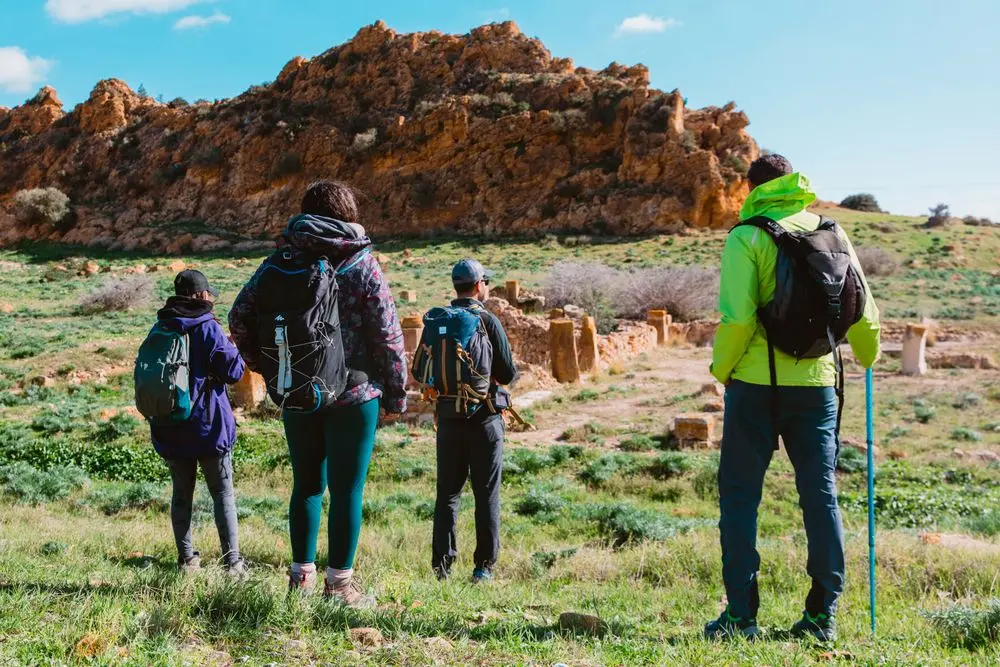
From organic cosmetics to sustainable lodging, a quiet revolution is taking place—fueled by local entrepreneurs, eco-conscious travelers, and an urgent need to preserve the country's natural and cultural heritage.
In a time when climate change and over-tourism are threatening ecosystems and communities worldwide, Tunisia’s sustainable shift could position it as a model for North Africa.
Despite its relatively small size, Tunisia is home to a surprising range of ecosystems:
Mediterranean beaches and lagoons
The vast Sahara desert
Forests and mountain ranges in the northwest
National parks such as Ichkeul (a UNESCO site) and Jebel Zaghouan
This diversity is a key driver for eco-tourism, offering activities such as:
Bird-watching and stargazing
Desert trekking with local guides
Olive oil route tours and organic farm stays
Cultural immersion in Berber villages and historic medinas
Traditional tourism brought millions of visitors, but at a cost—pollution, overcrowding, and unsustainable coastal development. Now, a new wave of tourism operators and boutique hotels are focusing on low-impact travel:
Dar Zaghouan – An eco-lodge that promotes agro-tourism, local crafts, and permaculture
Camp Mars – A desert retreat in Ksar Ghilane with solar-powered facilities and eco-friendly accommodations
Dar Ben Gacem – A guesthouse in the heart of Tunis medina that supports local artisans and promotes slow tourism
These destinations focus on community inclusion, environmental respect, and authentic experiences.
Tunisia’s tradition of handmade goods—ceramics, textiles, olive oil, and cosmetics—is finding new expression through ethically focused startups.
Natural skincare using Tunisian ingredients like prickly pear oil, clay, and jasmine
Zero-waste packaging and refill systems in urban stores
Fair trade practices with artisans and farmers
Eco-fashion using recycled fabrics or traditional weaving
Kahlé – An ethical fashion and accessories brand rooted in Berber aesthetics and sustainable materials
Floraison – A clean beauty company creating organic cosmetics from Tunisian botanicals
Herbéos – Natural cosmetics brand promoting local medicinal plants and plastic-free packaging
These brands are not only serving a niche—they’re redefining how Made-in-Tunisia products are perceived globally.
Many of Tunisia’s ethical and eco-initiatives are led by women and young entrepreneurs. With support from NGOs, EU grants, and local accelerators, they’re creating businesses that respect the land and elevate marginalized voices.
Lab’ess (Laboratoire de l’Économie Sociale et Solidaire)
Startup Act – providing legal and financial support to eco-conscious startups
Creative Tunisia – a program to promote sustainable craft industries
While the momentum is promising, several obstacles remain:
Limited public awareness about eco-tourism and ethical consumption
Infrastructure issues in rural regions
Bureaucratic hurdles for small sustainable businesses
Need for better waste management and renewable energy adoption
Yet these challenges are matched by strong opportunities:
Rising interest in conscious travel post-COVID
Access to European markets for export
Tunisia's potential as a filming location and digital nomad base
As global consumers grow more mindful of what they buy—and where they travel—Tunisia is gaining attention:
Listed in UNESCO's creative cities for crafts and folk art
Regularly featured in eco-travel blogs and green guides
Partnering with international NGOs on climate and community-focused projects
Tunisia’s eco-tourism and ethical business scene isn’t just a trend—it’s a growing movement shaped by people who are reimagining the country's future with sustainability, dignity, and purpose.
For travelers and consumers seeking authentic, ethical experiences, Tunisia now offers more than sun and sand—it offers connection, consciousness, and care.
And for the country itself, this shift may be one of the most meaningful paths to inclusive, sustainable development.